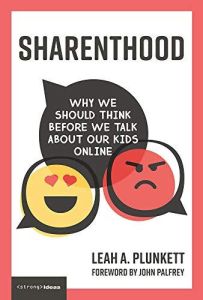Law professor Leah A. Plunkett explores the risky digital behavior of “sharents” – parents, educators and caregivers who digitally disclose children’s personal information, often without understanding the range of consequences. “Sharenting” intrudes on kids’ privacy and sense of self, threatens their safety, and hinders their opportunities as they enter adulthood. Plunkett also describes how current laws enable and contribute to the sharenting problem, and proposes ways that parents and regulators might make the digital world safer for children.
Divulging children’s digital data robs them of privacy, thwarts their ability to form their own identities and agency, and limits their prospects.
When parents, educators and other caregivers share information about children digitally, they typically don’t intend to do harm. However, this behavior deprives their charges of a private, protected childhood – a necessity for forming a sense of self and autonomy. Exposing a person’s childhood and adolescence online compromises the vital processes of play, experimentation and learning through trial and error.
Current laws give parents, schools and the government decision-making power over the digital privacy of youth up to age 18. In the bleakest scenarios, this has led to negligent – though not currently illegal – parental oversharing. Even well-meaning caregivers habitually exchange personal information about their charges for free or inexpensive tech access and services. They often don’t fully understand the consequences, and the children never sign on to this deal. Once tech providers have kids’ data, they can commodify or use that data in myriad, long-term ways.
Young people’s digital...
Leah A. Plunkett is an associate dean and legal skills professor at the University of New Hampshire’s Franklin Pierce School of Law, as well as a faculty associate at the Berkman Klein Center for Internet and Society at Harvard University. Her experiences as a legal aid lawyer representing young clients helped inform her book Sharenthood.

















Comment on this summary